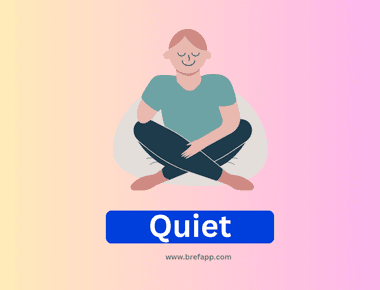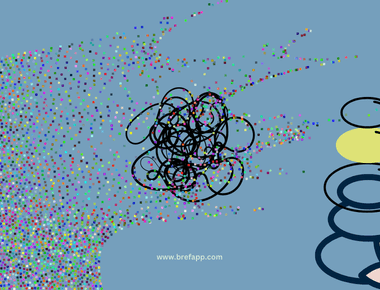
The Social Animal: A Summary of David Brooks' Book

The Social Animal: The Hidden Sources of Love, Character, and Achievement is a book written by David Brooks, a renowned American journalist and political commentator. The book, published in 2011, aims to explore the intersection of social science and human behavior by providing insights into the hidden forces that drive us as social animals.
In this article, we will provide an overview of Brooks’ book, focusing on its main themes and ideas. We will explore how the book describes the two sides of the mind, the power of relationships, and the importance of character in shaping our lives. By the end of this article, you will have a deeper understanding of the key concepts of the book and its relevance to our daily lives.
Overview of the Book
The Social Animal is a book that explores human behavior and how it is shaped by social forces. Brooks argues that we are social animals, and our behavior is not just the result of our individual choices, but also the result of our interactions with others.
The book is divided into two parts. The first part explores the two sides of the mind, the conscious and unconscious, and how they interact to shape behavior. The second part explores the power of relationships and the importance of character in shaping our lives.
Throughout the book, Brooks uses research from various fields such as psychology, neuroscience, and sociology to support his arguments. He draws on studies and anecdotes to illustrate how our behavior is influenced by social factors such as culture, family, and friends.
The book’s focus on the intersection of social science and human behavior makes it a unique and insightful read. By exploring the idea of the “social animal,” Brooks provides readers with a fresh perspective on what drives us as human beings.
The Two Sides of the Mind
The first part of The Social Animal explores the two sides of the mind, the conscious and the unconscious, and how they interact to shape behavior. Brooks argues that our conscious mind is the voice of reason, while the unconscious mind is the voice of emotions, habits, and intuitions. Both of these sides work together to shape our behavior.
Brooks suggests that our unconscious mind plays a bigger role in shaping our behavior than we realize. He uses examples such as our attraction to certain people, the way we make decisions, and our ability to read facial expressions to show how our unconscious mind influences our behavior.
For example, Brooks discusses how our unconscious mind plays a role in our attraction to certain people. He argues that our unconscious mind is attracted to people who possess traits that we are seeking, even if we are not consciously aware of it. He also uses the example of how our unconscious mind influences our ability to read facial expressions. Studies have shown that people can recognize a facial expression in less than a second, which indicates that our unconscious mind is processing the information before our conscious mind has a chance to.
Brooks’ exploration of the two sides of the mind provides readers with insights into how our unconscious mind shapes our behavior. By understanding how the conscious and unconscious minds interact, we can better understand ourselves and our behavior.
The Power of Relationships
The second part of The Social Animal explores the power of relationships and the importance of social connections in shaping our behavior. Brooks argues that our relationships with others are a key factor in determining our success and happiness in life. He suggests that social connections can influence our decisions and actions, often without us even realizing it.
Brooks uses various examples to illustrate how social connections can shape our behavior. For example, he discusses how our social networks can impact our health and wellbeing. He argues that people who have strong social connections tend to be healthier, happier, and live longer than those who are socially isolated. Additionally, Brooks highlights how our social connections can impact our decision-making. He explains that our social networks can shape our beliefs, values, and attitudes, which in turn can influence the choices we make.
The book also emphasizes the importance of empathy in building strong relationships. Brooks suggests that empathy is the key to understanding and connecting with others. He argues that by developing empathy, we can build stronger relationships and create a more compassionate and caring society.
The book’s emphasis on the power of relationships provides readers with insights into how social connections can shape our behavior and impact our lives. By understanding the role of empathy in building strong relationships, readers can learn how to develop deeper connections with others and create more meaningful and fulfilling lives.
The Importance of Character
The Social Animal also explores the importance of character and moral values in shaping our behavior. Brooks argues that our character is not just the result of our individual choices, but also the result of our interactions with others and the social environment around us.
The book suggests that our moral values are shaped by social norms and cultural influences. Brooks explains that our beliefs and values are often formed through socialization, as we learn from our parents, peers, and cultural institutions. He also suggests that our character is influenced by our social environment, such as our community, workplace, and society as a whole.
Brooks uses various examples to illustrate how social influences can shape our character. For instance, he discusses how cultural norms around marriage and family can influence our behavior and values. He also explores how our work environment can shape our character and ethical values, such as the impact of a toxic work culture on employee behavior.
The book also emphasizes the importance of developing strong moral values, such as honesty, integrity, and empathy, in order to lead a fulfilling and meaningful life. Brooks argues that by cultivating these values, we can become better individuals and contribute to a more compassionate and just society.
The book’s exploration of character and moral values provides readers with insights into how our behavior is shaped by social influences. By understanding the role of socialization and culture in shaping our values and beliefs, readers can learn how to develop a stronger sense of character and contribute to a more positive social environment.
FinalToughts
The Social Animal by David Brooks explores the intersection of social science and human behavior. The book emphasizes the importance of understanding the two sides of the mind, the power of relationships, and the role of character and moral values in shaping our behavior. Brooks argues that our behavior is not just the result of individual choices, but is also influenced by social factors such as our social networks, cultural norms, and social environment.
The book is relevant and impactful because it provides readers with a new perspective on human behavior and how we can improve our lives by understanding and harnessing the power of social connections and developing strong moral values. The book challenges readers to think deeply about the factors that shape our behavior and encourages us to strive for a more compassionate and just society.
For readers who want to learn more about the topic, I recommend exploring other books and resources in the field of social psychology and behavioral economics, such as Thinking, Fast and Slow by Daniel Kahneman, Influence: The Psychology of Persuasion by Robert Cialdini, and The Power of Habit by Charles Duhigg. These resources can provide readers with additional insights into the factors that shape our behavior and offer practical strategies for improving our lives.
-—
Tags
Related Posts



Quick Links
Categories



